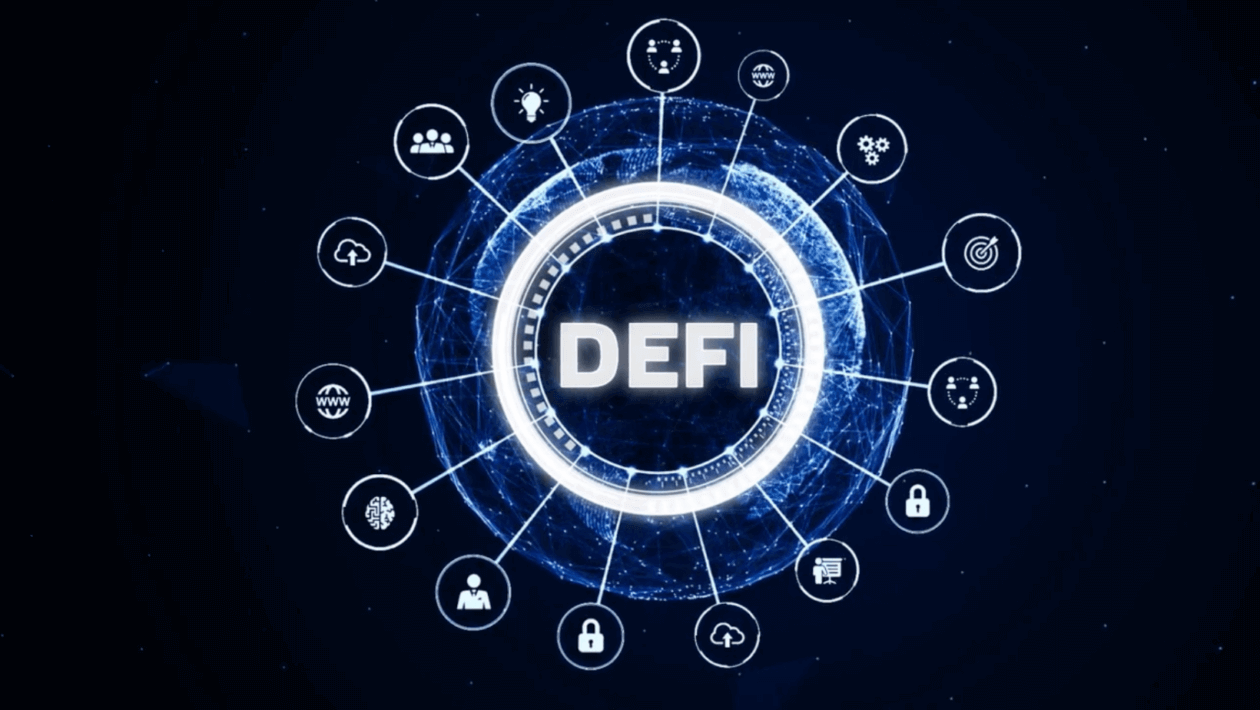Blockchain Technology is rapidly transforming the FinTech sector, offering unprecedented opportunities to revolutionize financial transactions and services. Blockchain technology’s decentralized, transparent, as well as irreversible distributed ledger design has the potential to greatly improve security, reduce costs, and increase efficiency and accessibility in the financial sector. Early adopters of blockchain technology are already benefiting from its enhanced security, transparency, and innovative solutions, placing them at the forefront of this disruptive technological revolution.

Source: M2P FinTech
Blockchain Technology Interconnected with FinTech
Fintech, as well as blockchain technology, are closely related. Additionally, blockchain provides the financial sector with opportunities for transformation and growth. Blockchain is revolutionizing the fintech industry, determining the direction of finance by removing intermediaries, enhancing security and transparency, democratizing money management, automating processes, and encouraging innovation.
Eliminating Third-Party Intermediaries: Streamlining Banking Operations
Blockchain’s P2P transactions and decentralized protocols eliminate third-party intermediaries in banking operations, improving processing times by reducing transaction costs for fintech companies and their clients.
Increasing Transparency and Security: Enhanced Trust and Compliance
Blockchain technology enables transactions to be recorded and verified on a public ledger, increasing transparency along with security. This transparency helps reduce fraud and improves compliance with regulations, fostering trust among stakeholders.
Democratizing Money Management: Financial Inclusion for the Unbanked
Unbanked and underbanked people can now access financial services more easily thanks to blockchain technology. Financial inclusion is promoted via blockchain-based solutions. That allows people to send and receive money without the requirement for a conventional bank account.
Automating Operations: Efficiency through Smart Contracts
Blockchain automates financial operations, such as loan approvals and payments, through smart contracts. By eliminating manual intervention, blockchain reduces costs. And improves efficiency, streamlining processes in the fintech industry.
Creating New Financial Solutions: Innovation for All
Blockchain is driving the development of new financial solutions that scale faster, are cheaper, more secure, and accessible to a wider range of people. These innovations democratize finance, empowering ordinary individuals with enhanced financial tools and services.
Real-Life Use Cases: Transforming the Financial Landscape
These real-world applications of blockchain in fintech show how technology has the power to completely transform the financial sector. it improves security, streamlines procedures, cuts costs and boosts transparency. It is anticipated that as blockchain develops, it will open up new doors for creative solutions to problems now facing the financial sector.
Digital Verification: Blockchain technology enables the development of a secure, decentralized system for digital identity verification. With this use case, security is increased, the possibility of identity theft is decreased, and customer onboarding procedures are simplified.
Cross-border payments: By removing middlemen and shortening transaction times, blockchain enables faster and more affordable cross-border payments. Through the use of blockchain, financial institutions can facilitate direct peer-to-peer transactions, guaranteeing quicker settlement times and reduced costs.
Smart contracts: Blockchain-based smart contracts streamline financial processes like loan approvals and payments without the use of middlemen. Self-executing contracts known as “smart contracts” have predetermined rules and conditions that are written on the blockchain. They automatically carry out an agreement’s terms, assuring the accuracy, efficiency, and transparency of financial transactions.
Supply chain finance: Blockchain technology enhances supply chain finance by creating a transparent and secure system. It enables real-time tracking and verification of goods as they move through the supply chain, reducing the risk of fraud and improving efficiency.
The Rise Of DeFi
The convergence of fintech and blockchain has given birth to a groundbreaking technology called decentralized finance (DeFi). Built on secure distributed ledgers akin to those used in cryptocurrencies, DeFi challenges the centralized financial system by enabling users to conduct financial transactions without traditional intermediaries. Leveraging blockchain technology, DeFi offers a distributed and secure database or ledger, providing a foundation for innovative financial applications known as dApps.

Source: ForKast News
The Power of DeFi: DeFi represents a paradigm shift in the financial industry, empowering users to transact, invest, lend, and more, without the need for a traditional bank account. By utilizing blockchain technology, DeFi enhances transparency, reduces costs, and improves accessibility, redefining the possibilities of financial services.
The Role of Blockchain: At the heart of DeFi lies blockchain, the technology behind cryptocurrencies. The blockchain serves as the distributed and secure infrastructure that enables decentralized financial transactions. It ensures transparency, immutability, and trust by recording transactions on a decentralized ledger accessible to all participants.
Unlocking Financial Opportunities: DeFi has garnered significant investment from reputable sources, fueling optimism about its transformative impact on the financial industry. Users can access a variety of financial services, such as transfers, lending, investing, and more by utilizing DeFi, all without the usage of conventional banking institutions.
Reshaping the Financial Landscape: In the financial sector, DeFi has become a creative and disruptive force. Fintech enthusiasts and established businesses alike have expressed interest in it due to its potential to boost transparency, save costs, and improve accessibility.
Blockchain and DeFi Empower Underserved Populations
Blockchain technology has the power to completely change the financial services industry by increasing access for underrepresented communities, lowering costs, and increasing transparency. It enables the unbanked and underbanked to access essential financial services and enhance their general financial well-being by removing intermediaries, enhancing security, and offering chances for credit and insurance.
M-Pesa in Kenya: M-Pesa, a popular SMS payment system in Kenya, has revolutionized financial inclusion in the country. It allows individuals to send and receive money without a traditional bank account. In addition, it empowers underserved populations, fostering financial accessibility and bridging the gap.
Decentralized Finance (DeFi) Solutions: DeFi solutions leverage blockchain technology to eliminate intermediaries and automate transactions using smart contracts. It enables peer-to-peer transactions and automation, offers lower costs, quicker transactions, new asset classes, peer-to-peer services, and equitable online access.
Blockchain-based Insurance Policies: Blockchain technology can facilitate insurance coverage for underserved populations. For instance, the partnership between ETHERISC and ACRE Africa has resulted in a decentralized insurance policy. The policy is designed to safeguard small farmers in Africa, providing them with critical protection.
UNICEF Innovation Fund: UNICEF’s Innovation Fund has made substantial investments, approximately $2 million, in blockchain projects. These initiatives demonstrate promising early results in addressing humanitarian issues and empowering real people to access vital resources, such as food, emergency aid, and previously inaccessible financial tools.
Conclusion
FinTech and Blockchain Technology are bringing transformation to the financial sector. Blockchain is providing underprivileged groups, enterprises, and individuals with novel financial solutions by enhancing transparency, lowering costs, and enhancing accessibility. The revolutionary potential of blockchain holds the promise of a more efficient and inclusive financial future for everybody as it continues to develop.
To know more about Blockchain Technology, go check out SunCrypto Academy.
Disclaimer: Crypto products and NFTs are unregulated and can be highly risky. There may be no regulatory recourse for any loss from such transactions. All content provided is for informational purposes only, and shall not be relied upon as financial/investment advice. Opinions shared, if any, are only shared for information and education purposes. Although the best efforts have been made to ensure all information is accurate and up to date. Occasionally unintended errors or misprints may occur. We recommend you to please do your own research or consult an expert before making any investment decision. You may write to us at [email protected].






Blockchain Technology & Development course is crucial for each & every crypto enthusiastic to understand & get Certified in these courses. Learning centers should come forward & take initiative in providing these knowledge to every Graduates, who are interested in learning acquiring these knowledge & skills. Thereafter getting Successfully Certification in Blockchain Technology & Development Course.